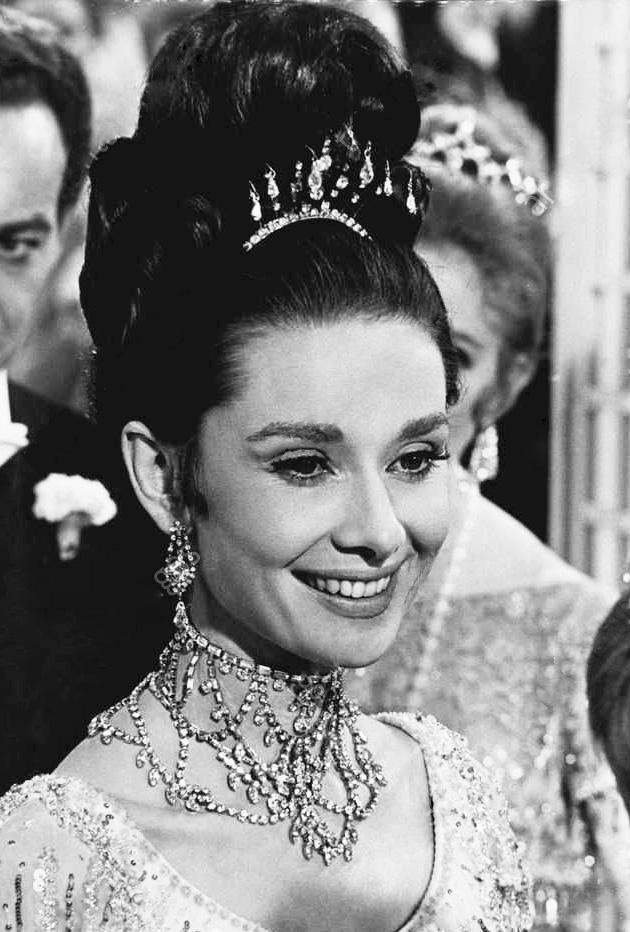
3 minute read
Gone But Not Forgotten
By Jacqueline Hodges
For years, I have been an admirer of the two great Hepburns: Audrey and Katherine. I sat and watched the movies from the Golden Age of Hollywood, in which these women starred, and subsequently I watched the documentaries about their respective lives. Both women presented to me as female role models with albeit differing attitudes: each being well-educated, possessed the strength of being true to oneself. And it is perhaps the influence of these two women that led me to call the magazine Hepburn. But it is Audrey Hepburn who I wish to speak about today.
Advertisement
Most of our readers, viewers and listeners will quickly recognise the name Audrey Hepburn and many will recall the movies in which she starred. Who can forget Audrey Hepburn’s performance as the elegantly, dressed Holly Golightly stepping out of the taxi to look at Tiffany’s store windows or cheekily pocketing party masks from the 5 and 10 store in Breakfast at Tiffany’s, or listening to the linguistically challenged Eliza Doolittle’s elocution lessons from phonetics Professor Henry Higgins and her relapse to Cockney twang as she shouts “Move your bloomin’ arse” at the Ascot Racecourse in My Fair Lady.
Audrey was the third-greatest female screen legend in Golden Age of Hollywood. Not at all incidentally, Katherine Hepburn is noted as the greatest. But back to Audrey. For her performance in Roman Holiday, she became the first actress to win an Oscar, a Golden Globe Award, and a BAFTA Award for a single performance.
Yet it is not for her acting career or her accolades as a style icon that I wish to pay homage, but rather it is for her most dignified role as UNICEF’s Goodwill Ambassador. For it is in this role that she truly demonstrated her leadership in challenging times.
Nothing is impossible. The word itself says: I’m possible. ”
Hepburn first worked for UNICEF shortly after World War II, reading children’s stories of war on the radio. However, it is years later, in 1998, that she truly immersed herself into humanitarian efforts; when she went on her first UNICEF field visit to Ethiopia, where years of drought and civil strife had caused terrible famine. Hepburn is quoted as saying at that time: “
The following year, in 1989, Hepburn was named a UNICEF Goodwill Ambassador and travelled the world meeting some of the world’s most vulnerable children and raising awareness for UNICEF’s programs.
She travelled to many nations, from Turkey to Bangladesh, through South America and Central America, from Thailand to Vietnam and various African nations. She promoted numerous projects that brought support to people living in poverty, drought and famine and to those living on the streets or displaced by war.
She promoted UNICEF’s projects to improve living standards for those affected, bringing polio vaccines, women’s training programmes, clean drinking water, schools, literacy, nutrition and housing.
But Hepburn’s personal history with UNICEF began much earlier in 1946, when UNICEF representatives rescued her from the terrible post-war famine in the Netherlands.
It is this history that drove Hepburn to help others. UNICEF reports that Hepburn worked tirelessly, giving as many as 15 interviews a day to the media in the United States, Canada and Europe. She also hosted awards, benefits and gave speeches to promote UNICEF’s work.
In 1992, she became the recipient of the Presidential Medal of Freedom. This is the United States’ highest civilian award. She continued her work for UNICEF until her death in early 1993.
It is in her own selflessness, and hard work that Audrey Hepburn fulfilled her true purpose and demonstrated her leadership in challenging times. And I want to leave you with this final Audrey quote:




